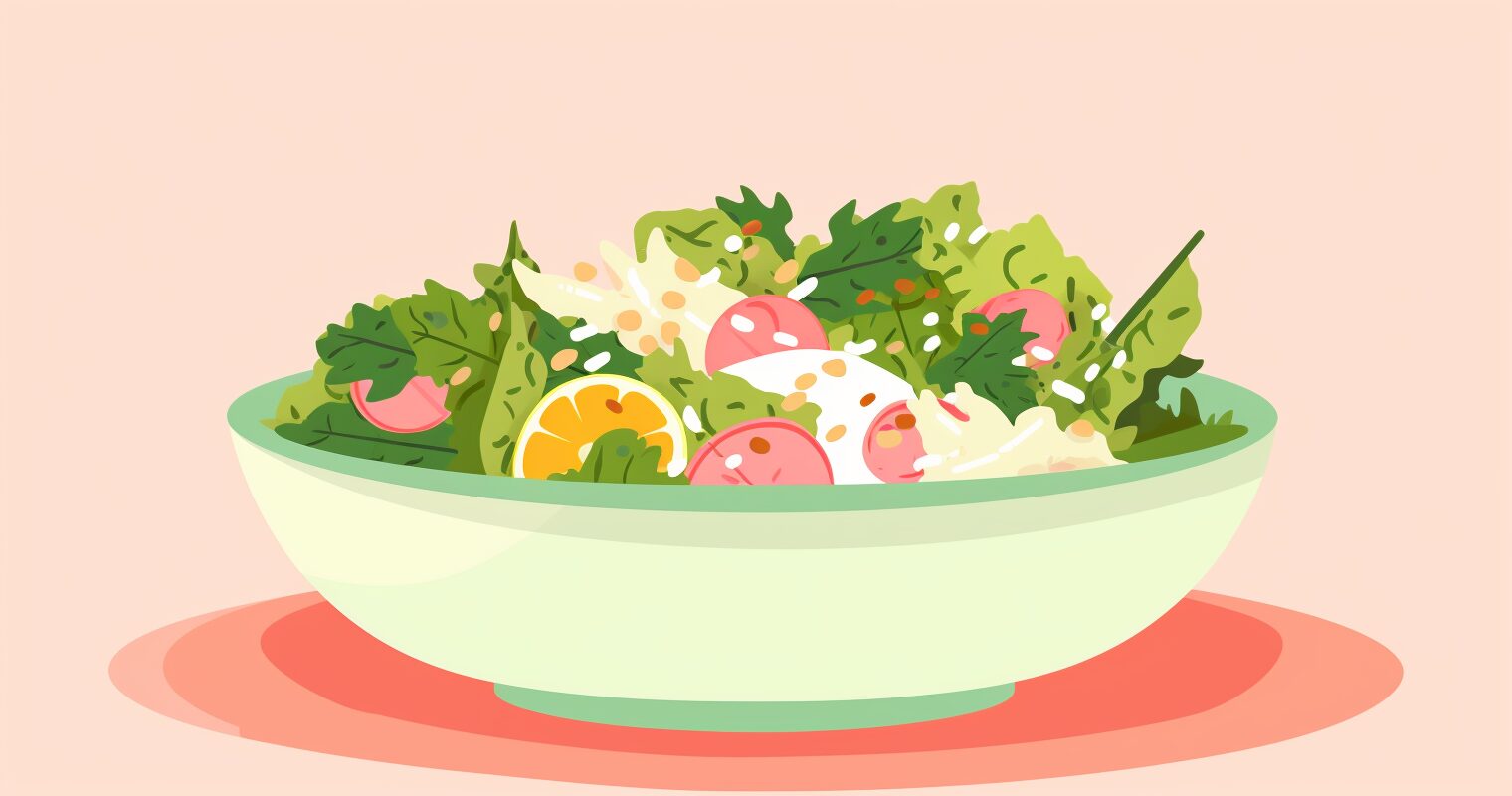Food & Parties • 07/04/2024
What Is an Anti-Inflammatory Diet? Exploring The Do’s and Don’ts

Revivalist is a reader-supported endeavor and our posts may contain affiliate links. When you buy through links on our site, we may earn an affiliate commission.
Inflammation is your immune system’s natural response to inflammation and tissue damage following injury. While this process is natural, your immune system may fail to switch off it. A few factors contributing to this include lifestyle factors, such as obesity. Other hereditary inflammatory issues include allergies and skin conditions such as psoriasis and eczema.
Additionally, it can be made worse or better with diet. Explore the do’s and don’ts of anti-inflammatory diet and other ways to help reduce inflammation.
What Is an Anti-Inflammatory Diet?
An anti-inflammatory diet focuses on managing symptoms associated with the effects of inflammation. This diet advises restricting certain foods and encouraging the consumption of healthier alternatives.
One of the most common types of this diet is the Mediterranean-style diet, as it provides a variety of whole foods that promote desired anti-inflammatory effects.
Who Should Try an Anti-Inflammatory Diet?
Inflammation is believed to be the root cause of various diseases. This diet is beneficial for those who have the following health complications:
- Psoriasis
- Rheumatoid arthritis
- Asthma
- Esophagitis
- Crohn’s disease
- Colitis
- Lupus
- Inflammatory bowel disease (IBD)
- type 2 diabetes
- Obesity
- High blood pressure
- Heart issues
Don’t: Eat Inflammatory Foods
Various foods can cause or exacerbate inflammation. Limit your intake of the following foods to avoid inflammation:
- Processed food: Bacon, sausage, bologna and luncheon meats
- Red meat: Steak and burger patties
- Deep-fried foods: Fried chicken, donuts and French fries
- Refined carbs: Pasta and bread
- Desserts: Cake, cookies, ice cream and candy
- Processed snacks: Crackers, pretzels and chips
- Sugary beverages: Soda, canned tea drinks and sports drinks
- Trans fat: Refrigerated biscuits, dough, non-dairy coffee creamers and margarine
- Specific oils: Vegetable oil and processed seed oil
The Health Risks of Inflammatory Food
If you’ll notice, the safe foods that can exacerbate inflammation are generally considered bad for your health, including sodas and refined carbohydrates. According to Dr. Hu via Harvard Health Publishing, some of these foods are associated with an increased risk for chronic diseases, such as heart disease and type 2 diabetes. The physician also stressed that inflammation is a vital underlying factor for disease development.
Aside from this, it can also contribute to weight gain, which is a factor for inflammation.
Do: Eat Anti-Inflammatory Foods
Conversely, various foods can help reduce inflammation and manage its symptoms.
Olive Oil
Olive oil is a fundamental ingredient of the Mediterranean diet. It’s a rich source of mono-saturated fats, which can help reduce bad cholesterol levels in your blood and lower the risk of heart disease and stroke. Extra-virgin olive oil means it’s minimally processed and contains more polyphenols, protective plant compounds that help protect the body against inflammation and pain.
Unsalted Nuts and Seeds
Nuts may be small, but they deliver huge benefits for your body. Many nuts and seeds contain polyunsaturated and monosaturated fats, which help lower cholesterol levels and reduce the risk of heart disease. They are also rich sources of vitamins and minerals.
- Walnuts: Walnuts are high in alpha-linoleic acid (ALA) and have the highest omega-3 content. It can help lower C-reactive protein (CRP), a marker of inflammation associated with a higher risk of arthritis and heart disease.
- Almonds: These nuts contain more fiber than other nuts, making them an excellent choice for weight loss. It helps keep you full for longer. Almonds are also rich in vitamin E.
- Pistachios: Snacking on these nuts is beneficial for people with arthritis and can help lower LDL cholesterol.
- Chia Seeds: Chia seeds, commonly added to smoothie bowls and refreshing drinks, are a great source of ALA and fiber, which help keep you full for longer hours.
Fruits and Vegetables
Avocados, leafy greens and berries carry antioxidants and beneficial plant compounds that help lessen inflammation. Choose those that are brightly colored, as they contain high amounts of antioxidants and polyphenols. Some examples include red grapes, cherries, onions, turmeric, kale and collard greens.
Enjoy them on your plate or glass. You can also consume turmeric as a tea. Turmeric contains curcumin, a powerful antioxidant with anti-inflammatory properties that help fight carcinogens and improve brain health.
Fatty Fish
Salmon, sardines and trout are rich in omega-3 fatty acids that help fight inflammation and improve heart health. While you may be worried about mercury and other contaminant contents in fish, the benefits still outweigh the possible risks of contaminant exposure. Try to consume at least two servings of fish per week to reap its advantages.
Foods and Drinks High in Polyphenols
There are more than 8,000 types of polyphenols, with flavonoids, phenolic acids, stilbenes and lignans being the most common. You can enjoy the anti-inflammatory benefits of these food options:
- Cocoa
- Coffee
- Tea
- Spices, such as curry powder, cloves and star anise
- Red wine
- Beans
One-Day Sample Menu
Here’s a one-day sample menu to simplify your meal preparation.
Breakfast:
- 1 serving overnight oats with blueberries and banana
- 1 cup green tea
Snacks:
- ½ cup blackberries
Lunch:
- 1 serving of green salad with beets and edamame
Snacks:
- 1 medium carrot, cut into sticks
- 2 tablespoons of turmeric-ginger tahini dip
Dinner:
- 6-8 oz salmon fillet
- 1 serving of green cabbage
- Olive oil vinaigrette
This diet consists of 1,233 calories.
What Are Other Ways to Reduce Inflammation?
There are many things you can do besides changing your diet, such as:
1. Exercising Regularly
Did you know that exercising as little as 20 minutes can reduce inflammation? It doesn’t have to be intense to have anti-inflammatory effects. You can try fast walking or a moderate treadmill since intense workouts can intimidate those suffering from chronic inflammatory diseases.
2. Avoiding Alcohol Consumption
Alcohol is a toxin that can damage body tissues, cells and organs, triggering inflammation throughout the body. Another reason alcohol can lead to chronic inflammation is C-reactive protein. Higher amounts of alcohol in the body lead to an increase in C-reactive protein, which can trigger inflammation. Avoid or limit your alcohol consumption if you have a chronic inflammatory issue.
Try an Anti-Inflammatory Diet Today
There are ways to help reduce inflammation in your body. It starts with eating the right foods. Like everything else, don’t rush the process. Try to make small changes every day to get better used to your diet. Slowly but surely is key!
Subscribe to Our Weekly Newsletter
We would love to connect deeper with you!


